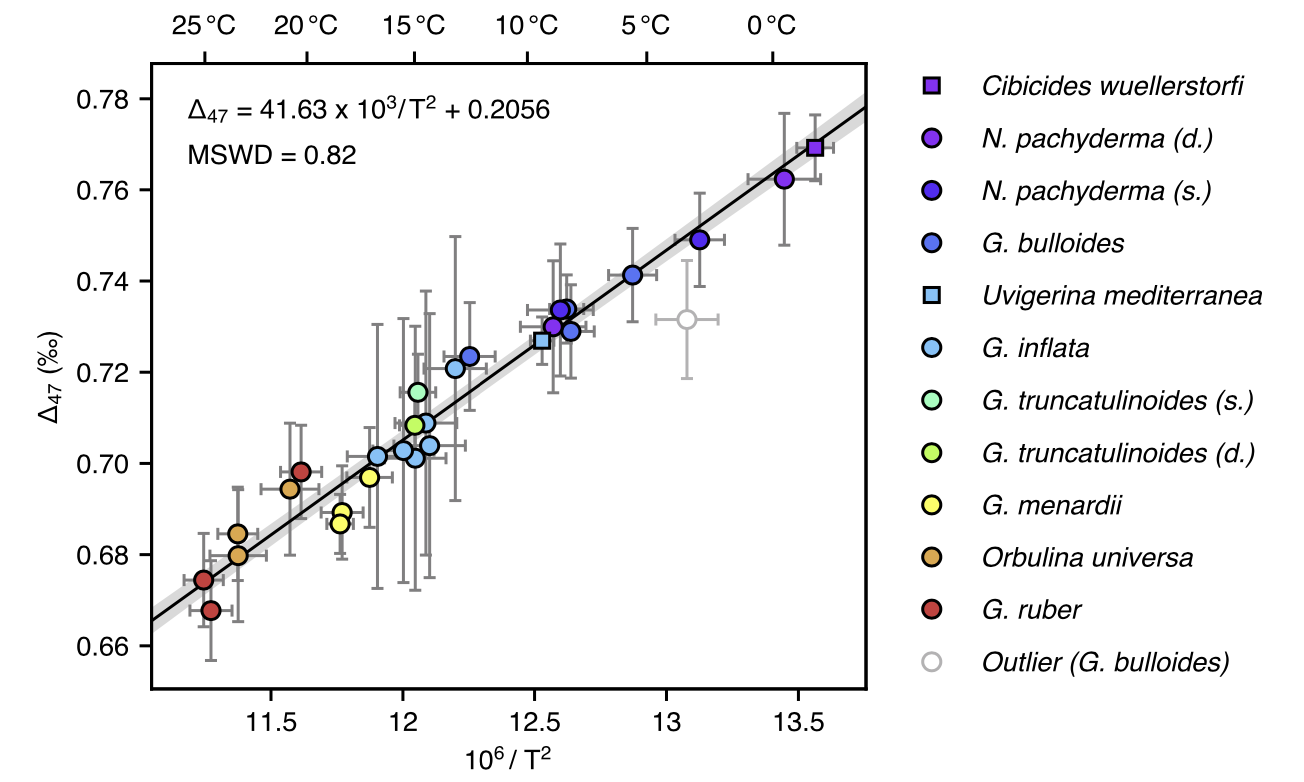PhD topic
I did my PhD at the Laboratoire des Sciences du Climat et de l'environement (LSCE), in France, on the establishment of a Calibration of the clumped-isotope thermometer in foraminifera and its application to paleoclimatic reconstructions of the mid-Pleistocene in the Gulf of Taranto.
In November 2015, I was awarded a competitive 3-years PhD fellowship "sujet phare" by the CEA, which consists of 15 fellowships/year in science, awarded for the excellence of both PhD topic and international applicants.
I worked under the supervision of Dr. Dominique Blamart, Dr. Franck Bassinot and Dr. Mathieu Daëron.
I graduated the 19th of October 2018 with the following jury members: Prof. G. Siani (University of Paris-Saclay), Dr. C. Johm (Imperial College London), Dr. N. Meckler (University of Bergen), Dr. T. De Garidel-Thoron (CEREGE, University of Aix-en-Provence), Dr. B. Malaizé (EPOC, University of Bordeaux).
Below find an abstract of my PhD dissertation and the link to read my thesis.

The quantification of past oceanic temperature changes is a critical requirement for understanding the mechanisms which regulate climate variations. Classical methods of paleothermometry could suffer from well-known limitations related to ecology and/or to physico-chemical biases (sea water salinity, acidity...). This work focuses on clumped-isotope carbonate thermometry (Δ47). It aims to establish a calibration of Δ47 foraminifera and use it to study past climatic variations through the Mid-Pleistocene Transition (MPT). The Δ47 calibration (see figure above) in planktonic and benthic foraminifera collected from modern marine sediment covers a temperature range of -2 to 25 °C. The clumped-isotope compositions of 9 species of foraminifera show a robust correlation with the calcification temperature, estimated from the measurements of oxygen-18. These results confirm the absence of bias linked to foraminifer ecology (species-specific and foraminifer size effects) and provide evidence that salinity does not affect the Δ47 thermometer. This study constitutes significant methodological progress for future paleoceanographic applications in foraminifera.
The MPT is a climatic transition characterised by a shift in the frequencies of glacial-interglacial cycles (from 41 000 to 100 000 years). Understanding the MPT is a major scientific objective, which underlies our effort to study the establishment of our present climate. Our Δ47 calibration was used to quantify temperature changes through the MPT in the Mediterranean Sea (Montalbano Jonico section, south of Italy), and in particular the marine isotopic stages 31 and 19, which may be described as Holocene analogues. We find that (1) Δ47-derived temperatures are different than the temperatures reconstructed from foraminiferal Mg/Ca ratios paleothermometer, (2) these results allow reconstructing changes in past oceanographic and hydrologic regime, and (3) Δ47 measurement are a promising component of multi-proxy paleoceanographic studies.
Contributive articles:
Peral et al., 2020. Changes in temperature and oxygen isotopic composition of Mediterranean water during the Mid- Pleistocene at Montalbano Jonico (southern Italy) using clumped-isotope thermometer. Paleogeography, Paleoclimatology, Paleoecology
Petersen et al., 2019. Effects of Improved 17O Correction on Inter-Laboratory Agreement in Clumped Isotope Calibrations, Estimates of Mineral- Specific Offsets, and Acid Fractionation Factor Temperature Dependence. Special Issue of Geochemistry, Geophysics, Geosystems
